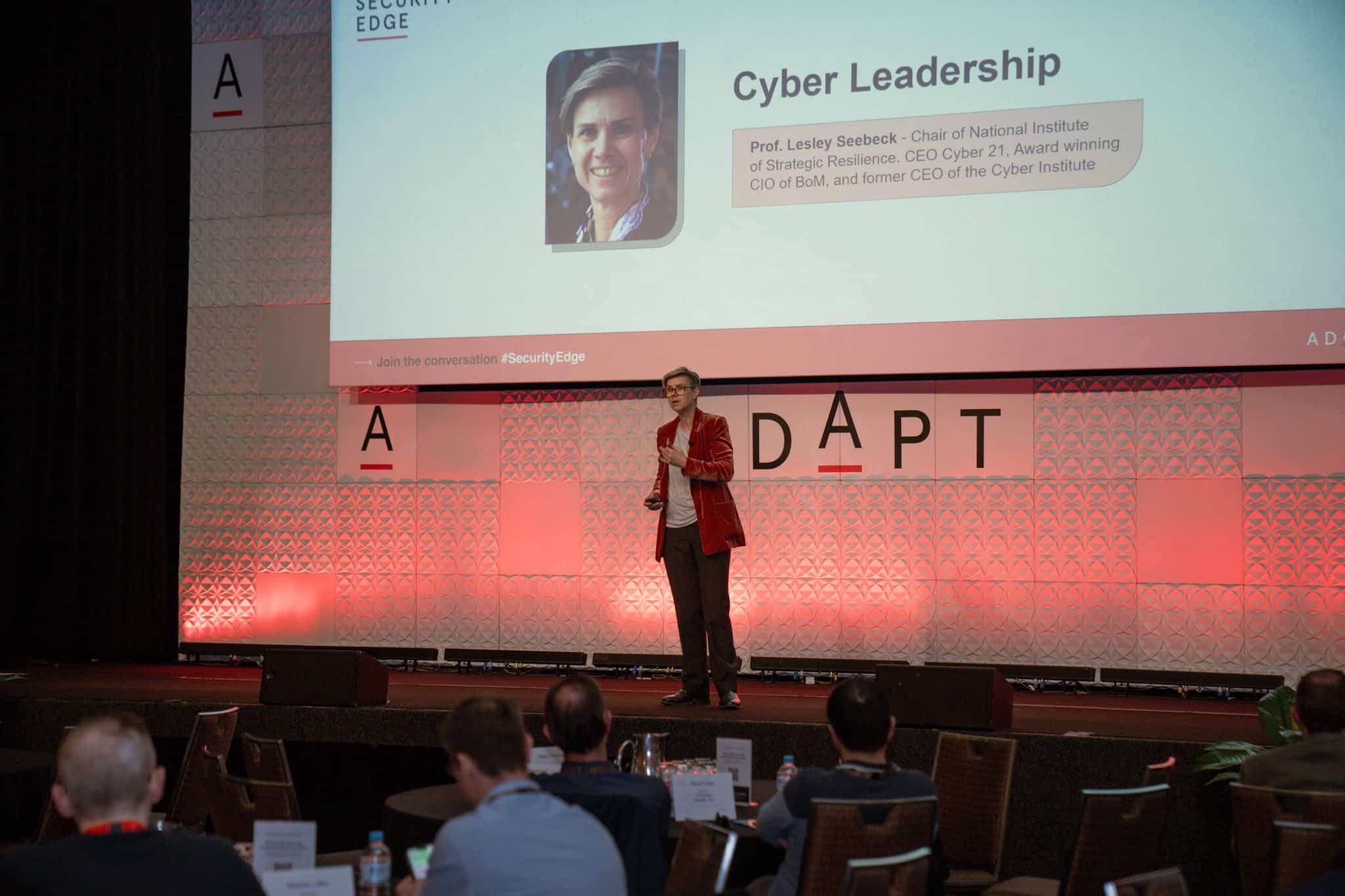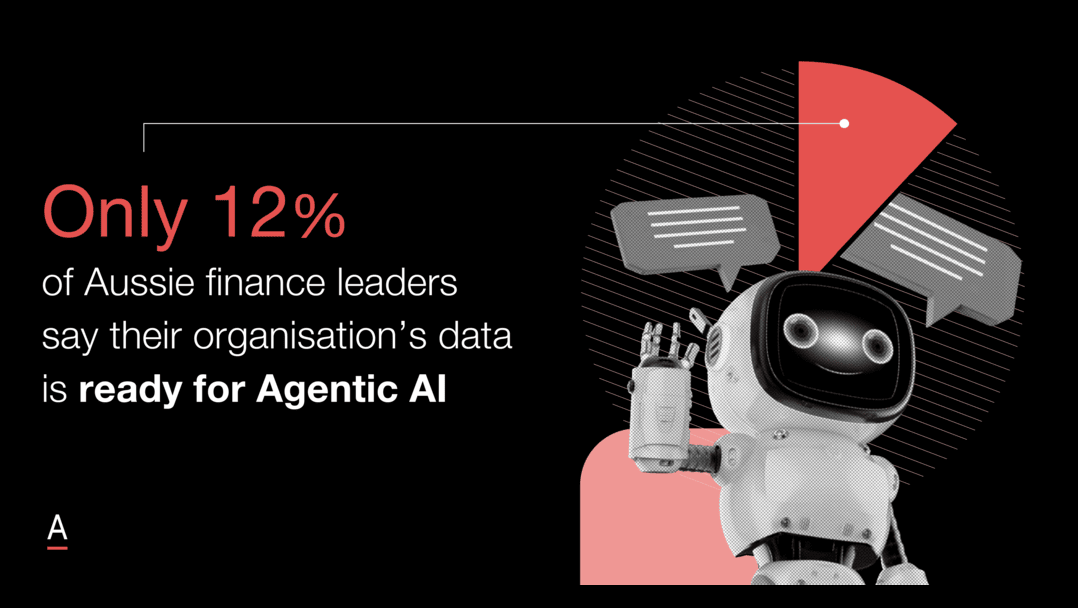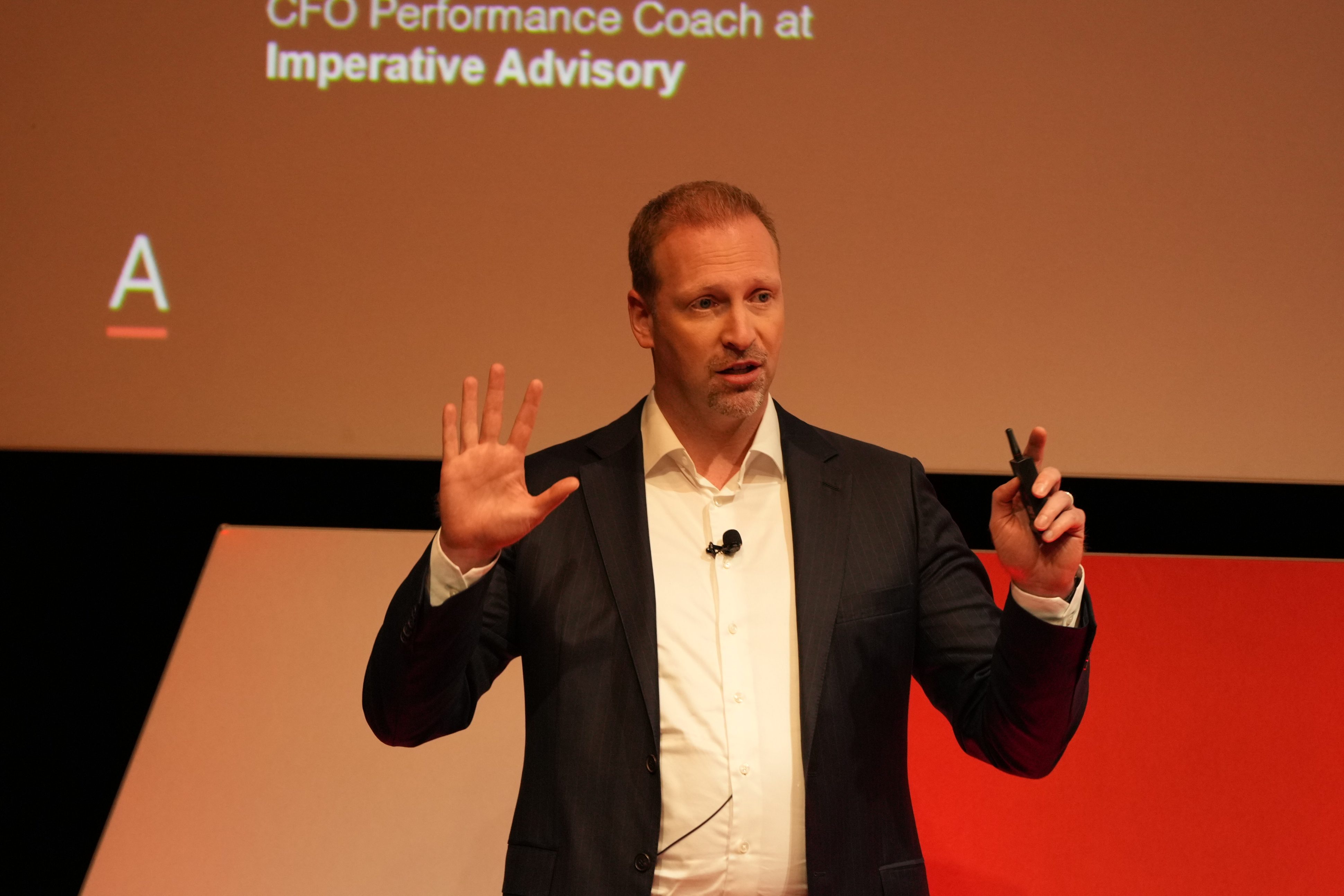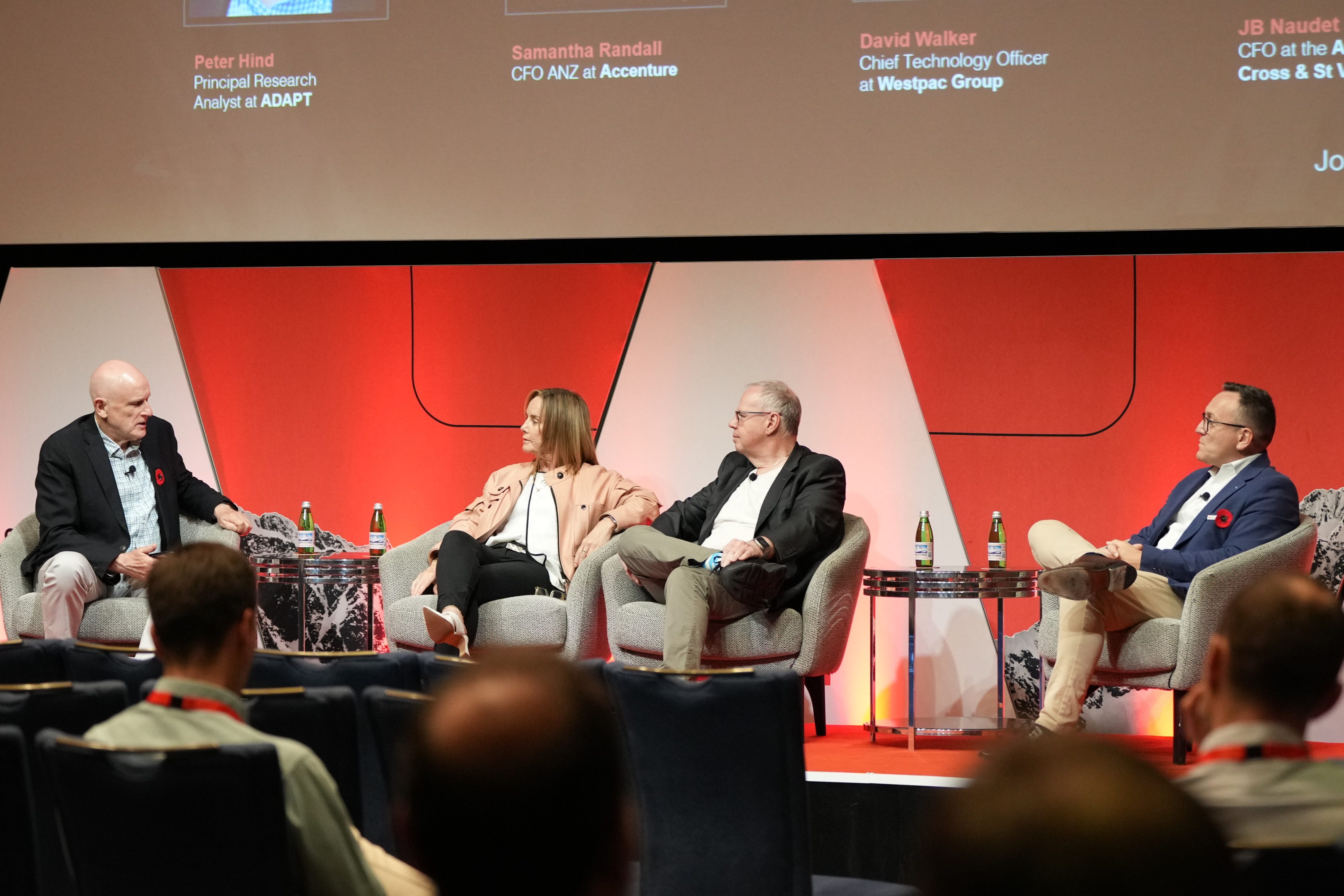What We Learnt About Enhancing Productivity and Modernisation with AI at CFO Edge
ADAPT's CFO Edge brought together 120 Australian CFOs and finance leaders for discussions on the changing dynamics of financial leadership.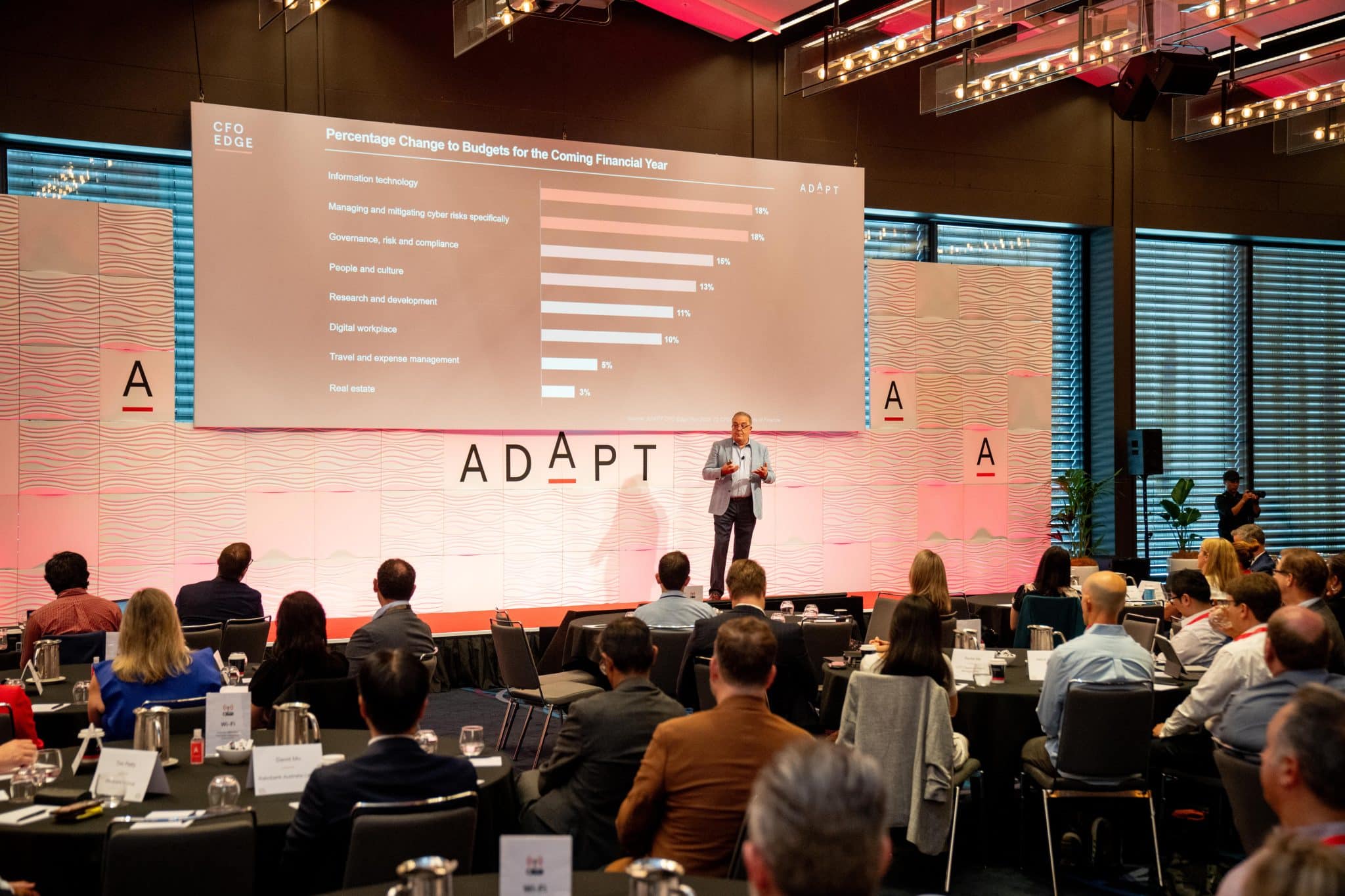
CFOs are playing a more strategic role in navigating complex financial landscapes.
ADAPT’ CFO Edge brought together 120 Australian CFOs and finance leaders for discussions on the changing dynamics of financial leadership.
During the event, Matt Boon, ADAPT’s Senior Research Director, shared insights into the evolving responsibilities, challenges, and priorities of CFOs based on research spanning 57% of Australia’s GDP.
He highlighted the intensifying competition for resources within organisations, underlining the need for aligned business priorities and cost optimisation.
Matt also revealed a projected 18% increase in technology and security budgets, reflecting the focus on governance and risk management due to increased leadership accountability.
Additionally, he noted a shift in technology expenditure, with 70% now as OpEx, highlighting visibility challenges in cost management.
He also discussed the plateau in public cloud workloads at 38% in Australia, indicating recalibrations in cloud strategies due to security and cost management challenges.
Prof. Ed Santow Champions Pragmatic AI Integration, Positioning CFOs as Key Leaders in Managing Legal and Ethical Risks in Finance
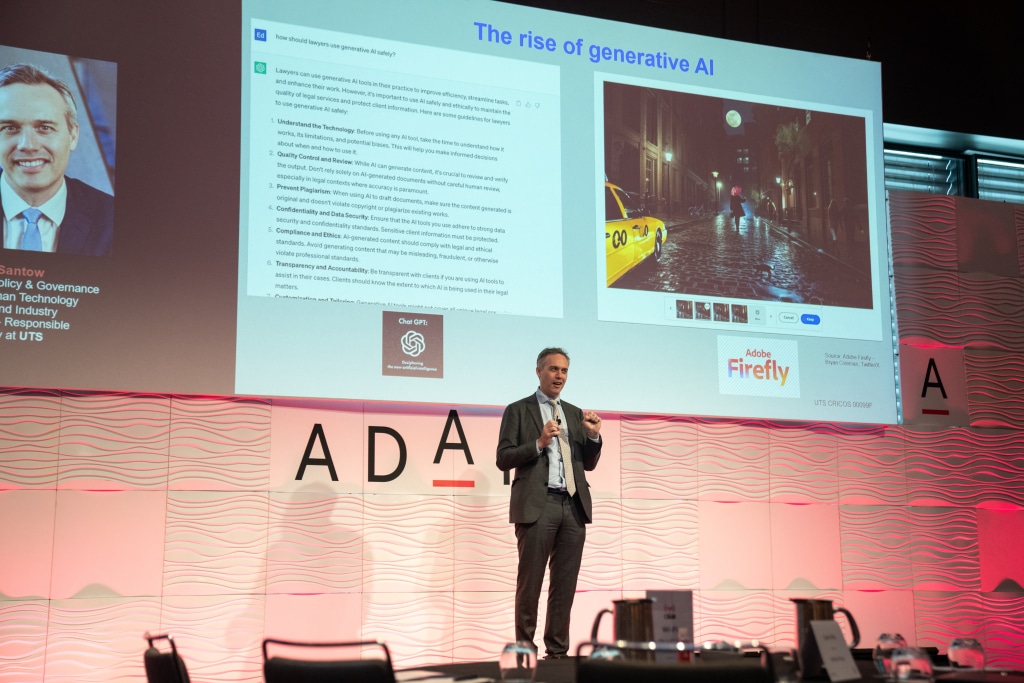
Director of Policy and Governance at UTS Human Technology Institute Prof. Ed Santow’s comprehensive presentation on integrating artificial intelligence (AI) in finance underscores the importance of recognising and effectively managing the inherent legal and ethical risks associated with AI.
He advocates for a pragmatic and thoughtful approach to integrating AI into financial processes, with a balanced strategy that carefully weighs legal and ethical considerations alongside the benefits of AI deployment.
Within decision-making, Ed identifies precision, fairness, and accountability as indispensable principles in the AI-driven landscape, stressing their integration into the design and implementation of AI systems.
Significantly, the presentation positions Chief Financial Officers (CFOs) as pivotal leaders responsible for addressing challenges linked to AI incorporation.
CFOs, Ed argues, play a crucial role in ensuring compliance with standards while harnessing the advantages offered by AI technologies. His insights encourage a measured understanding of AI’s impact on finance, promoting a realistic and responsible integration strategy.
Moreover, he portrays CFOs as essential guardians of compliance in the digital era, extending their role beyond financial management to actively engage in decision-making processes related to AI.
Key Takeaway: Embrace a balanced integration strategy led by CFOs, ensuring precision, fairness, and accountability in AI-driven finance while navigating legal and ethical considerations.
Prof. Lesley Seebeck Stresses CFOs’ Crucial Role in Collaborative Cyber Security Strategies
Chair of National Institute of Strategic Resilience and CEO Cyber 21 Prof. Lesley Seebeck’s presentation spotlights the importance of collaboration between CFOs and CISOs, acknowledging the tenure disparity between these roles.
She addresses the challenge of assessing the value of cyber security investments, with CFOs playing a pivotal role in scrutinising risks.
The discussion includes the diverse perceptions of cyber security risks and priorities across departments, underlining CFOs’ trade-offs between cost, security, and convenience.
Moreover, the presentation underscores the comprehensive costs associated with breaches, covering direct expenses, business losses, and intangible factors like reputation damage.
Prof. Lesley further highlights the pivotal role of CFOs in managing regulatory compliance and fostering adaptable risk models to address the dynamic nature of cyber security threats.
In essence, the presentation pinpoints the practical involvement of CFOs in shaping effective and cost-conscious cyber security strategies within organisations.
Key Takeaway: CFOs play a central role in collaborative cyber security efforts, navigating risks, evaluating investments, and managing compliance to shape effective organisational strategies.
Damon Rees Spotlights Service NSW’s Resilience, Emphasising Adaptability, Customer-Centricity, and CFO Leadership
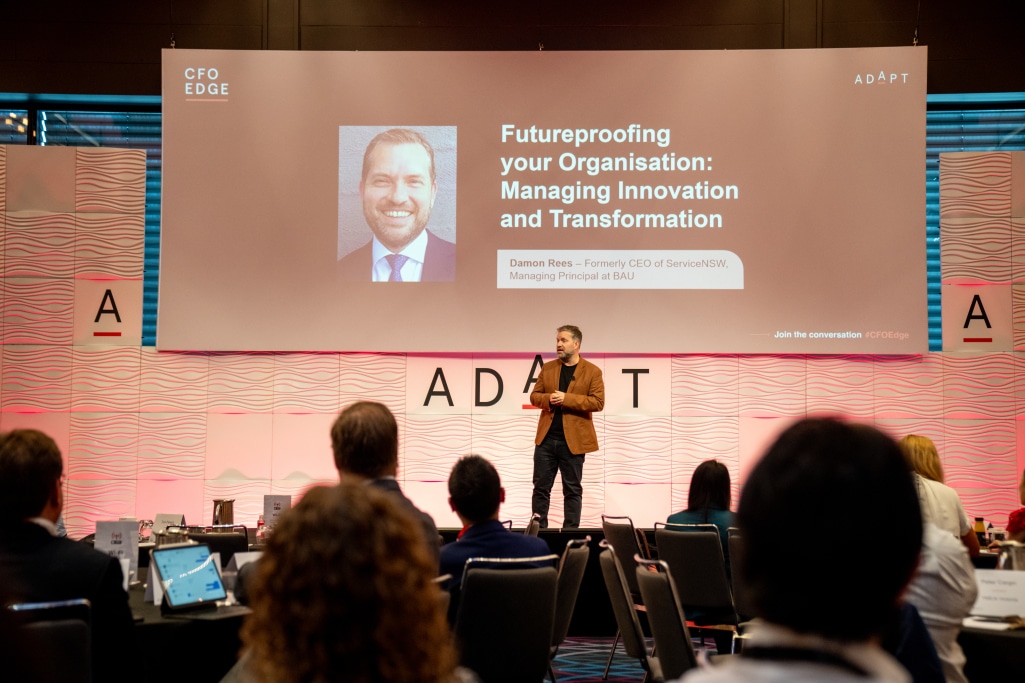
Managing Principal at BAU and former CEO of Service NSW Damon Rees’s insights from the Service NSW case study shed light on effective strategies for organisational resilience.
The focus on customer-centric approaches and digital transformation reflects a commitment to continuous adaptation rather than large-scale overhauls, fostering agility and responsiveness.
Service NSW’s collaborative ethos and iterative co-design methodologies were pivotal in swiftly identifying project success or failure, with finance playing a strategic role in resource allocation and supporting ongoing value creation.
The blame-free culture and early decision-making on unsuccessful initiatives contributed to efficient problem-solving.
Collaborative stakeholder engagement emerged as a crucial element for future-proofing the organisation, with the CFO playing a pivotal role in disciplined resource management and risk mitigation.
Service NSW’s journey underscores the interconnectedness of adaptability, customer-centricity, and prudent financial management in ensuring organisational resilience.
Key Takeaway: Service NSW’s case study spotlights the critical role of adaptability, customer-centricity, and disciplined financial management in ensuring organisational resilience, with the CFO playing a pivotal role in these interconnected strategies.
Solly Brown Unveils General AI’s Impact on Finance, Anticipating 15-40% Gains, Urging Caution on AI Hallucinations, and Emphasising Ethical Considerations
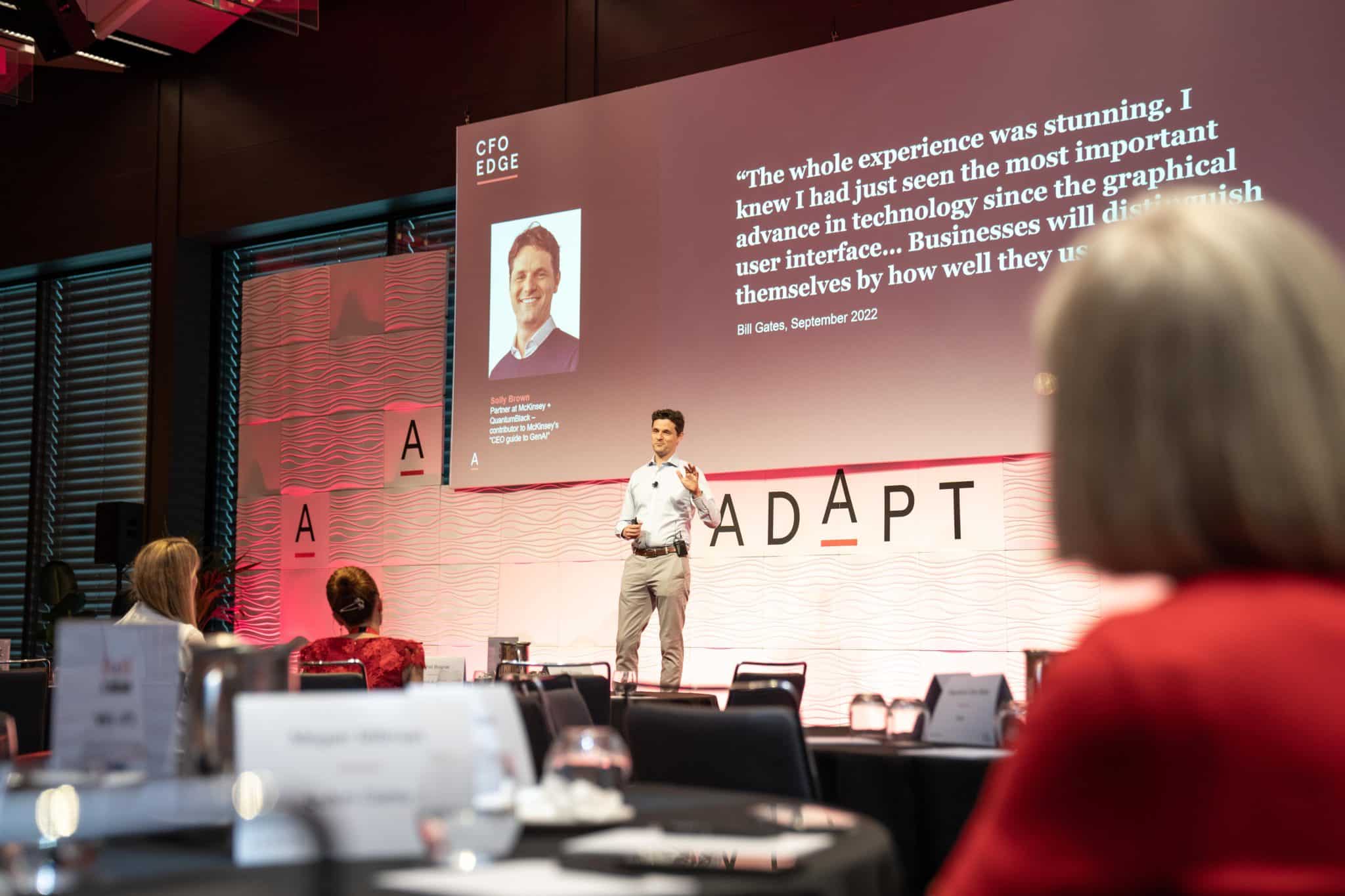
Partner at McKinsey + QuantumBlack Solly Brown’s presentation delved into the profound impact of General AI on the finance sector, particularly in content synthesis, coding, creative content generation, and customer engagement.
A pivotal takeaway from the discussion was the anticipated 15-40% incremental improvement expected across various industries, notably those grappling with substantial volumes of unstructured data.
Amid the optimism, Solly aptly highlighted the imperative for caution, flagging concerns about potential AI hallucinations and advocating for the establishment of robust accuracy mechanisms.
The presentation highlighted the prevailing trend of AI experimentation in finance, calling for a comprehensive approach that extends beyond technological considerations to encompass ethical and societal dimensions.
An essential aspect underscored the need for clear and practical strategies to operationalise these advancements, recognising the multifaceted challenges tied to data privacy, security, and regulatory compliance in this dynamically evolving landscape.
Key Takeaway: Solly’s presentation underscores the significant potential of General AI in the finance sector but urges caution, focusing on the need for robust accuracy mechanisms and straightforward strategies that encompass ethical considerations, societal dimensions, and challenges related to data privacy and regulatory compliance.
Conclusion
ADAPT’s CFO Edge conference provided valuable insights into the evolving role of Chief Financial Officers (CFOs), particularly stressing their strategic contributions to technology adoption.
Key themes emerged across various presentations:
- Strategic Evolution: CFOs are transitioning into strategic partners, extending their influence beyond traditional financial functions to impact crucial areas such as capital allocation, risk management, and digital transformation.
- Technology and Ethics: Ed Santow stressed the CFO’s pivotal role in navigating the legal and ethical considerations associated with AI integration, emphasising the importance of a practical approach to technology adoption.
- Cyber Security Collaboration: Lesley Seebeck highlighted the CFO’s responsibility in managing risks linked to technological advancements, underlining the need for collaboration with Chief Information Security Officers (CISOs) in addressing cyber security challenges.
- Finance’s Role in Innovation: Damon Rees showcased the CFO’s strategic involvement in resource allocation and risk mitigation, spotlighting how finance fosters innovation and adaptability within organisations.
CFO Edge collectively underscored the growing importance of CFOs in steering organisations through the complex landscape of technological change while also emphasising the need for ethical considerations and collaborative approaches to address associated challenges.






















